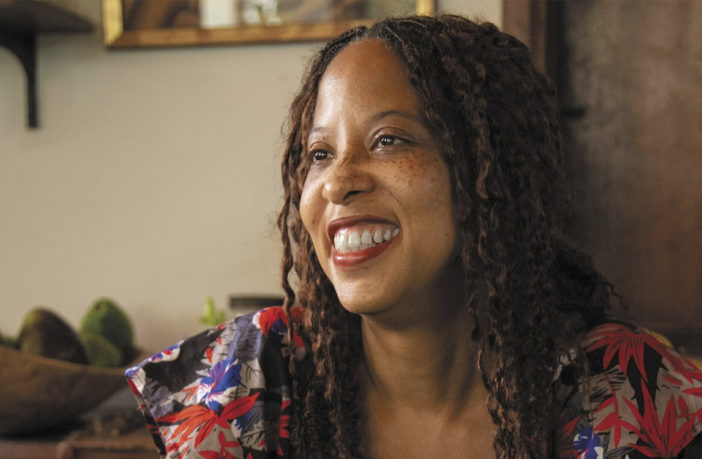In Wade in the Water: A Novel, author Nyani Nkrumah explores racism and classism, something she didn’t encounter as a child growing up in Ghana. “I went to an international school where the motto was that we come from different races and creeds and we really need to understand each other,” she tells EBONY. It wasn’t until Nkrumah moved to Zimbabwe that she felt the sting of prejudice. “I was the only Black girl in a very white class and what I experienced in that school was total drama, especially because of where I had come from.”
Wade in the Water: A Novel
Nyani Nkrumah (Amistad, January 17)
Price: $28
Chronicling an unusual friendship between Ella, a young Black girl, and Katherine St. James, a white woman, in the 1980s, in her debut novel, Nkrumah depicts how many of our life decisions are steeped in our childhood experiences, reinforcing just how fragile that time is. Here, the writer tells us about her creative motivation, her discovery of African American history and why Ghana was the place to be this past holiday season.
EBONY: What motivated you to write this book?
Nyani Nkrumah: I really wanted to write about a young Black child coming of age and the nuances between her and the other lead character, Miss St. James, who is a white researcher from Boston. It explores the relationship, intricacies and limits of that friendship through various themes of race and class and the different aspects of love and friendship.
Why did you decide to set it in the 1980s?
I wanted my main character, 11-year-old Ella, to be far enough away from the1960s in that she knows what happened in the Civil Rights movement—she learned in school—but hasn’t really experienced it. This is in direct contrast with the people in the town who are much older and have lived in the 1950s and 1960s. When Miss St. James arrives in the town, you see different reactions, some people are suspicious: why is she there and what are her motivations? The children in the community have a different perspective. That tension is what I wanted to create.
How do you personally connect with your two very diverse protagonists?
For Ella, of course, that’s relatively easy. The most complicated part was developing the character of Miss St. James. I realized that to really understand her, I had to go back into her childhood. When you’re a child, you are at your simplest, and then there are all these influences around you. Once I started to develop her as a child, I really began to see who she was as an adult. We start with Miss St. James at the age of five and you can draw lines between what is happening with Ella with what happened with Miss St. James as a child.
What was your experience growing up in Africa?
I grew up in Ghana, and it was really a colorblind society. Most of the people are Black. My parents were educated overseas in the U.S. and the UK and had a huge amount of international friends, there were a lot of Europeans around that I called auntie and uncle. When I was 15, my parents moved to Zimbabwe, which was just becoming independent in the early 1980s. They had lived through 100 years of minority-white rule and were just beginning to dismantle the architecture of racism in the country. They were busing kids from the top Black townships to the white schools and I happened to go to a school where this was happening. There were four streams and they put all the Africans in the lower two streams, but my parents insisted I go to the top stream. I couldn’t actually believe people would not sit by or talk to you. They were physically ill if they touched you. I realized very early on that I had to make sense of the two worlds that I’d come from, one where I thought white and Black people were equivalently wonderful. It took a lot of introspection and thought about the roots of racism. The distance between what I experienced and Mississippi in the 1960s are just a few steps away from one another.
Is that what inspired you to create characters steeped in African American history and culture?
I was going to college in the U.S.—I was here to do biology—but when I saw the Black studies curriculum, I knew needed to do both. I wanted a Civil Rights story and chose Mississippi deliberately. And I felt that I could connect with the characters and tell a pretty emotional story.
What do you love to see when you go home to Ghana?
I was there around Christmas during the Afrochella music festival. We had huge artists that came down for it like Burna Boy and Asake. And Aqua Safari is a place where you can go and do all these amazing watersports.
What do you hope people take away from your book?
People can coalesce around this book and discuss what are the roots of racism and colorism and build bridges between communities. I hope readers are drawn to the white and the Black characters, to understand how they think and how that motivates their behavior which influences the actions they take in the story. I’d really like for that to be discussed and debated.
Wade in the Water: A Novel is available on Amazon on January 17, 2023.



